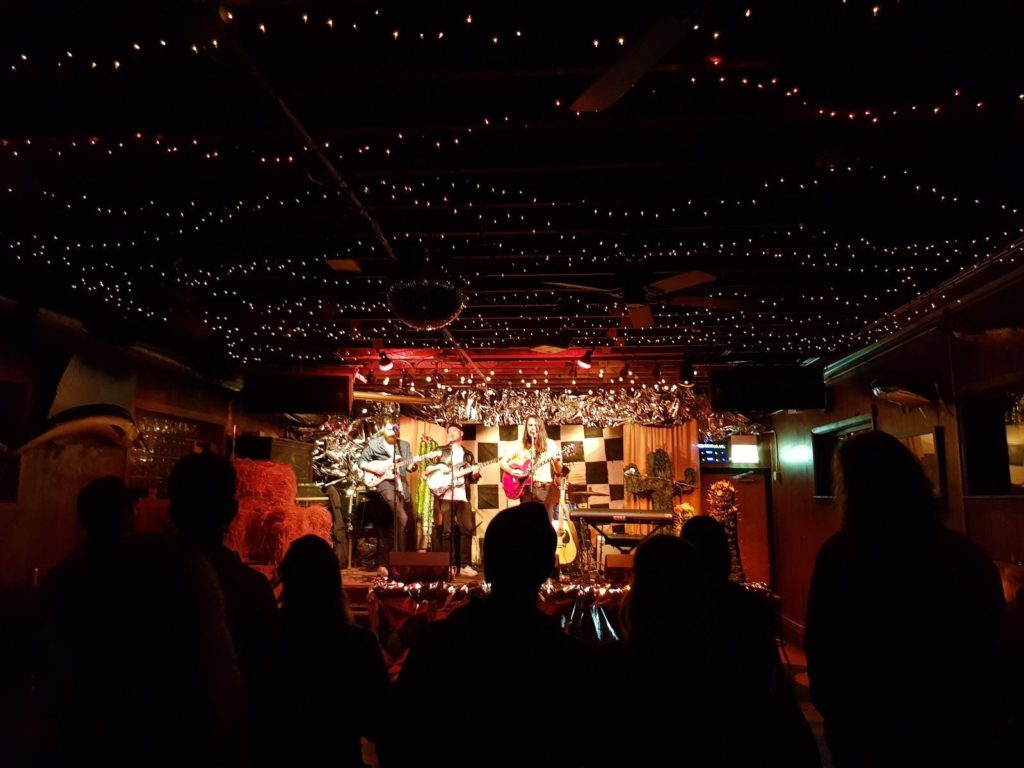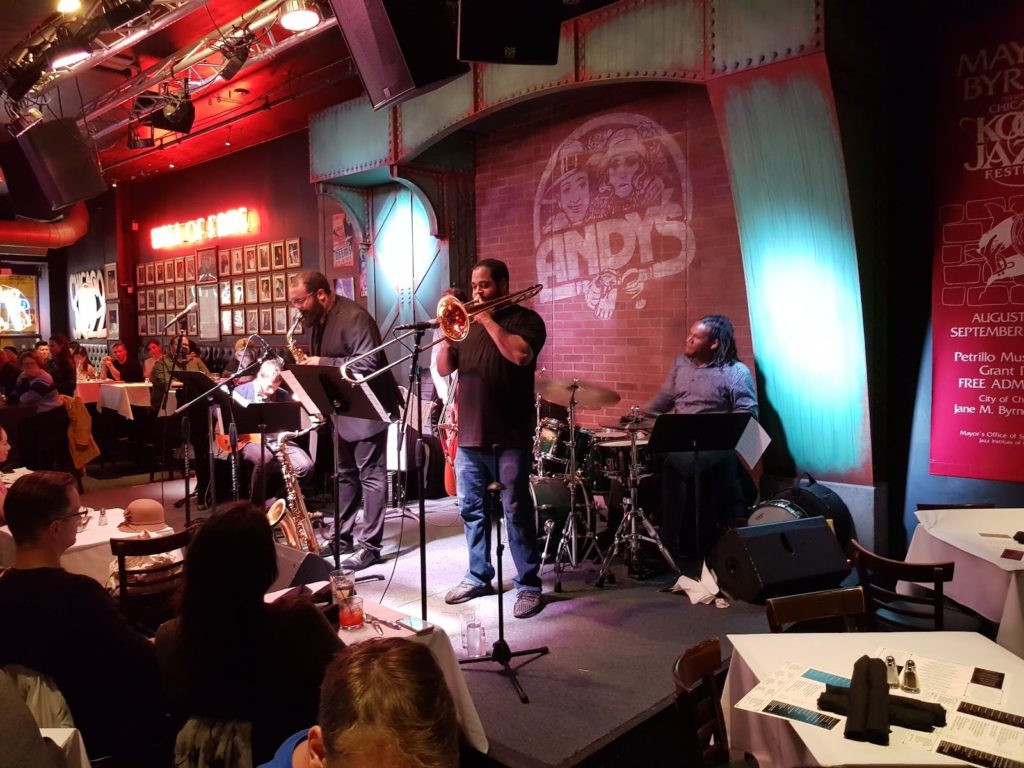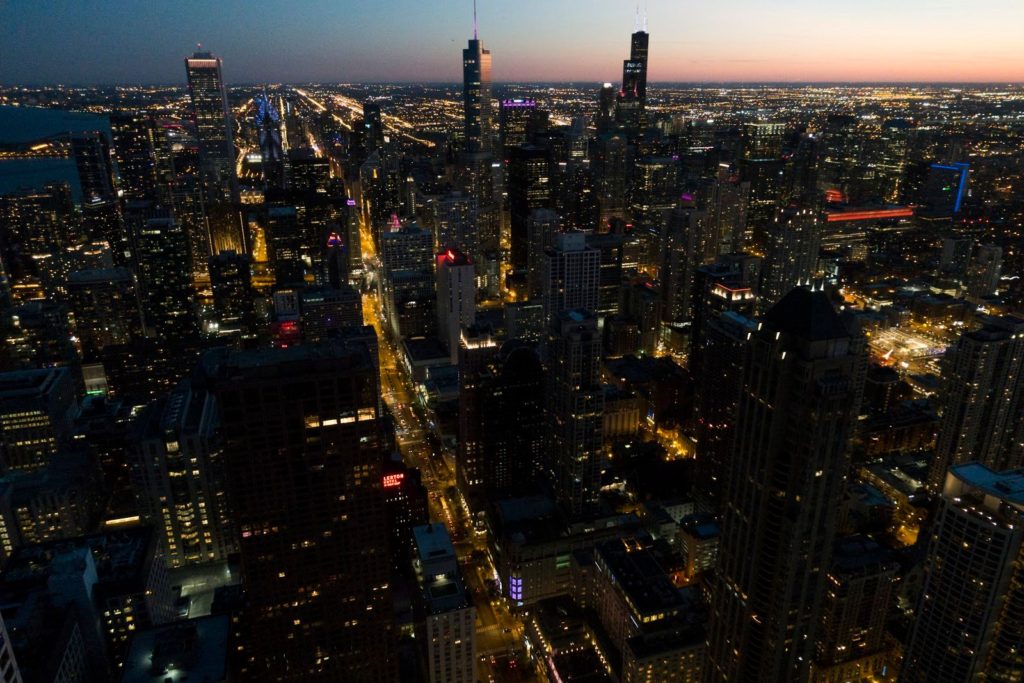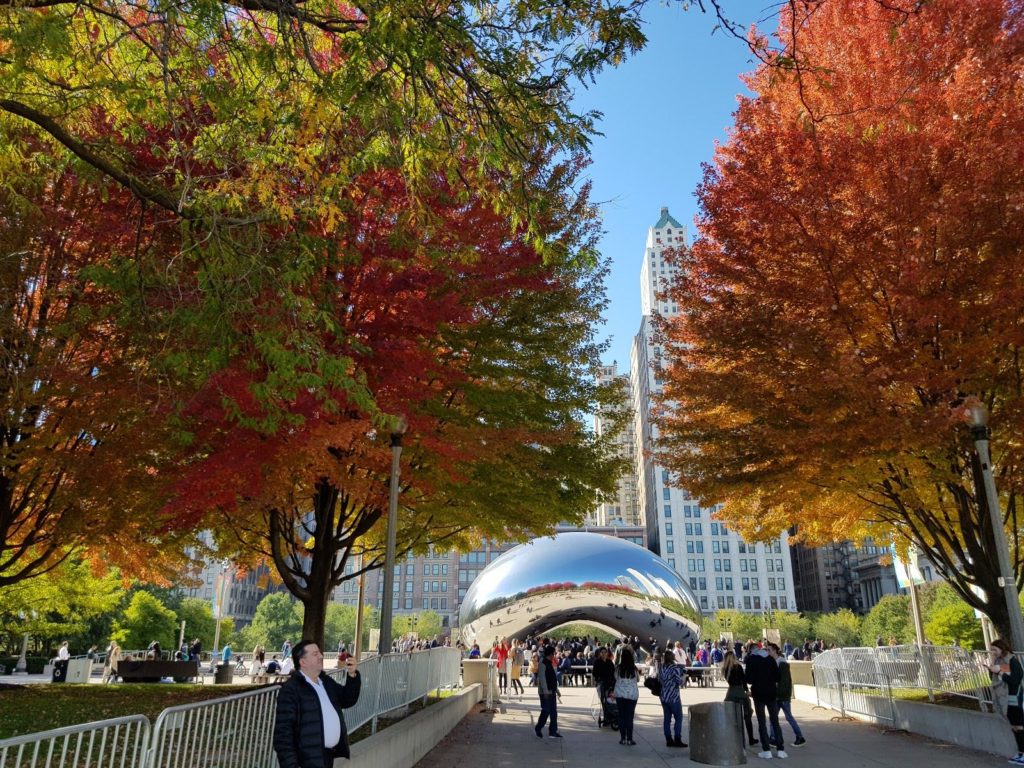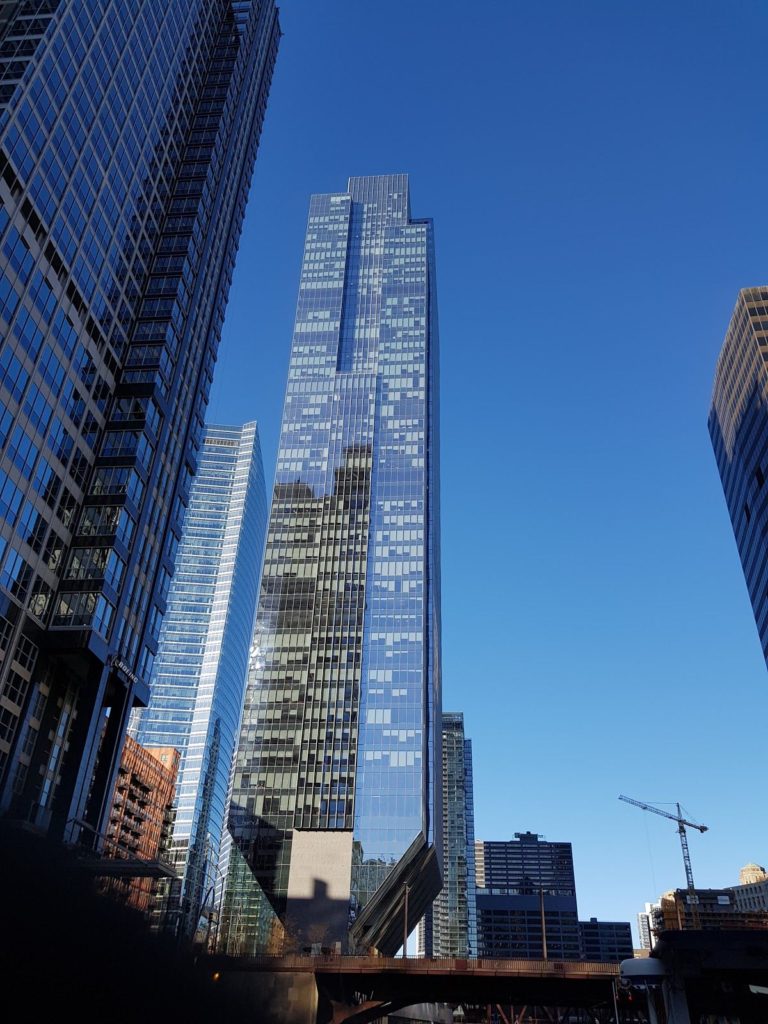Since 2007 the Clinton Global Initiative University (CGI U) has been organizing an annual meeting where more than 1000 international students meet to discuss pressing global issues such as climate change, poverty, and public health. This year, the CGI U meeting took place in Chicago, and ETH Zurich supported four teams in joining the meeting. The teams were selected thanks to their commitments to tackle problems in education (EquipSent), mobility of visually impaired people, energy consumption, and deforestation (FFM).
Young student leaders tackle global challenges
by Nico Lang and Andrés Rodríguez Escallon, 29.11.2018
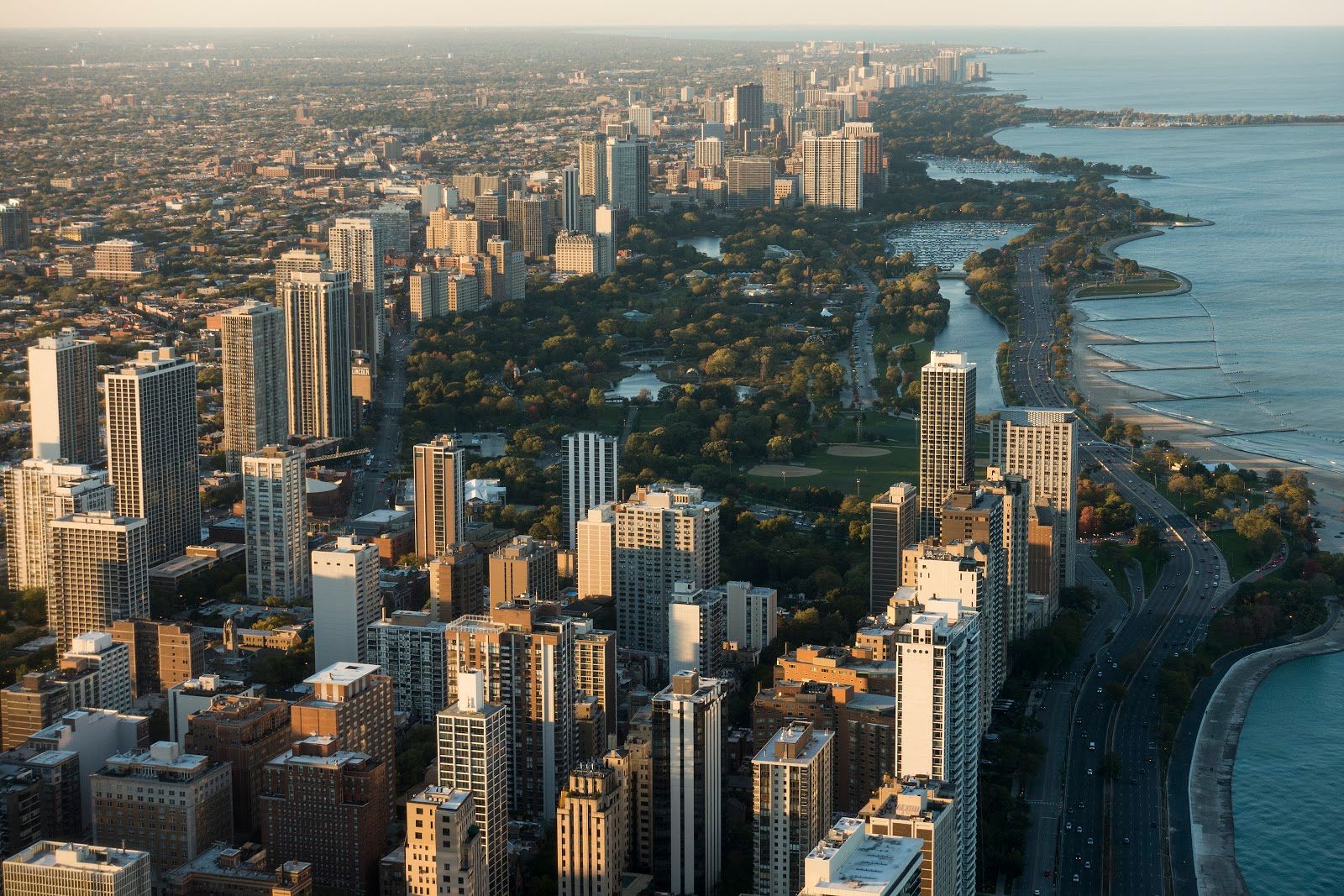
Chicago’s shoreline along Lake Michigan (photo credit: Nico Lang/Andrés Rodríguez Escallon/ETH Zurich)
The Clinton Global Initiative University meeting in Chicago led us to reflect on our role in society: here’s why we want to use our technical skills to fight climate change.
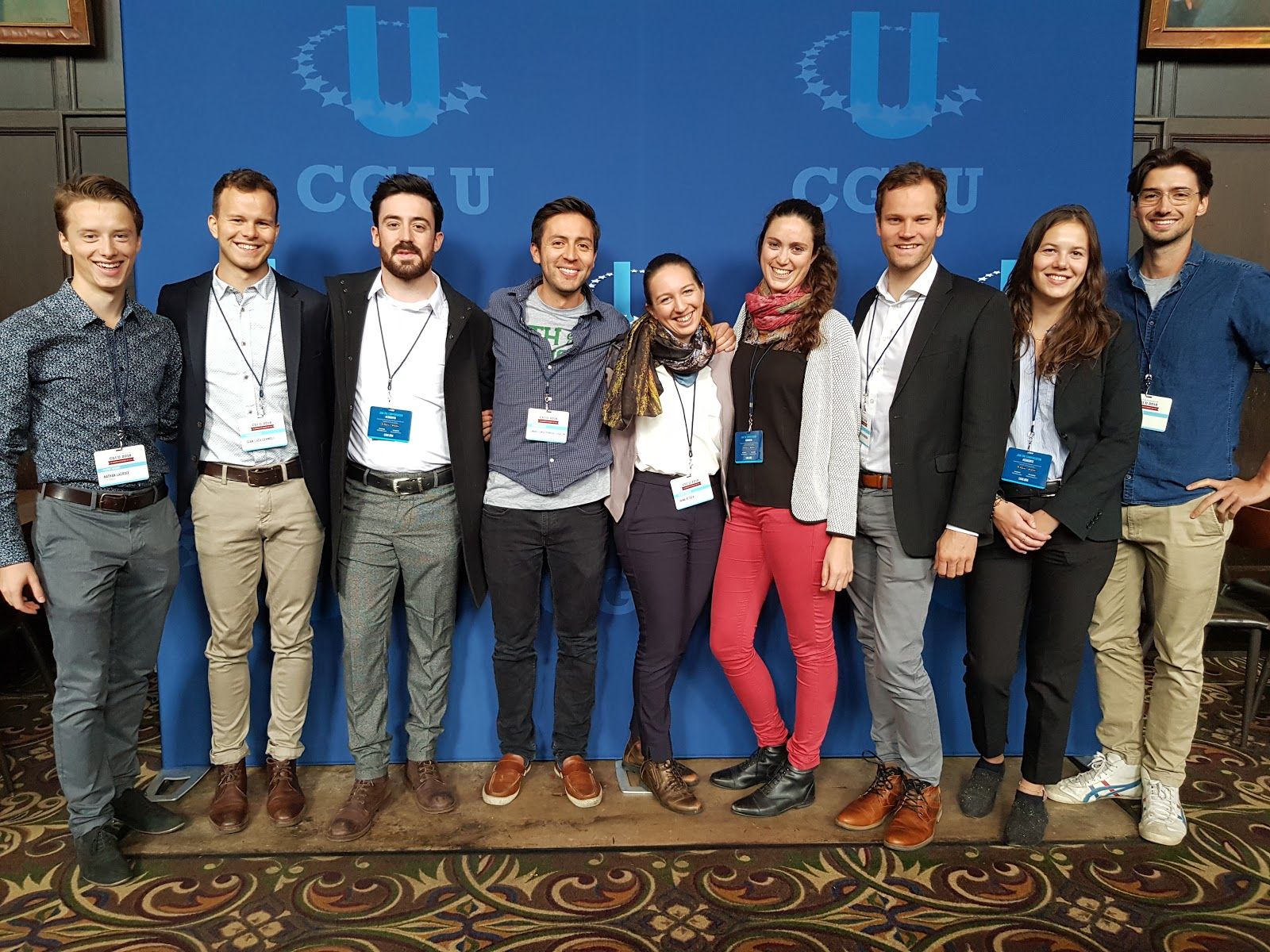
ETH Zurich participants at CGI U Nathan Lacroix, Gian Luca Gehwolf, Fabio Peixoto, Andres Rodriguez, Irina Ritsch, Katharina Keller, Jan-Georg Rosenboom, Prune Truong, Nico Lang (photo credit: Nico Lang/Andrés Rodríguez Escallon/ETH Zurich)
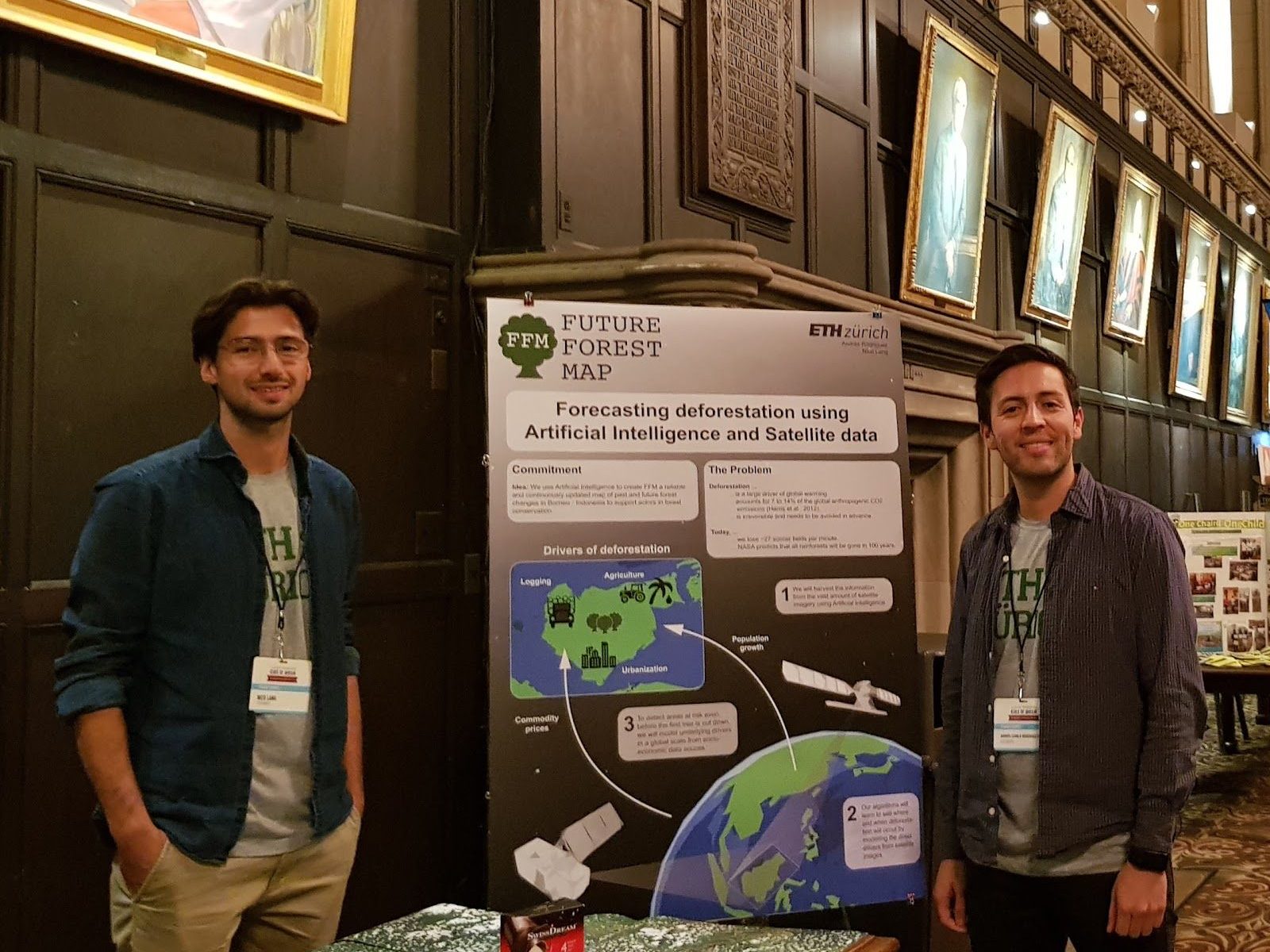
Nico and Andres ready for presenting their commitment to all other 1000 students (photo credit: Nico Lang/Andrés Rodríguez Escallon/ETH Zurich)
We, Andres and Nico, were two of the ETH Zurich representatives. We are committed to implementing the Future Forest Map (FFM); a tool inspired by our research projects to forecast deforestation using Artificial Intelligence (AI) and satellite data. FFM aims to providing accurate and highly localized information about deforestation. Our goal is to empower actors in forest conservation to increase their success.
One of the key benefits to be gained from attending this meeting was the networking, and right from the beginning, we had the opportunity to interact with other students active in different focus areas. Initially, we were taken aback by the very excited (or in Swiss terms: "mega-excited") behavior among the US students, which was somewhat shocking for us. After getting over this cultural shock we got used to it, and we started to see the actual content.
One interesting story was about D'Angelo McDade, an African American who was shot in his leg in 2017 right in front of his house in Chicago. Since then, he has been working as a “Peace Warrior” to improve safety in his neighborhood. His way of speaking was moving; it reminded us of a melodic gospel speech. He teaches the local police how the community works, and that gun violence can be fought through education rather than violence. This maturity and leadership was impressive, especially considering that he is only 18 years old.
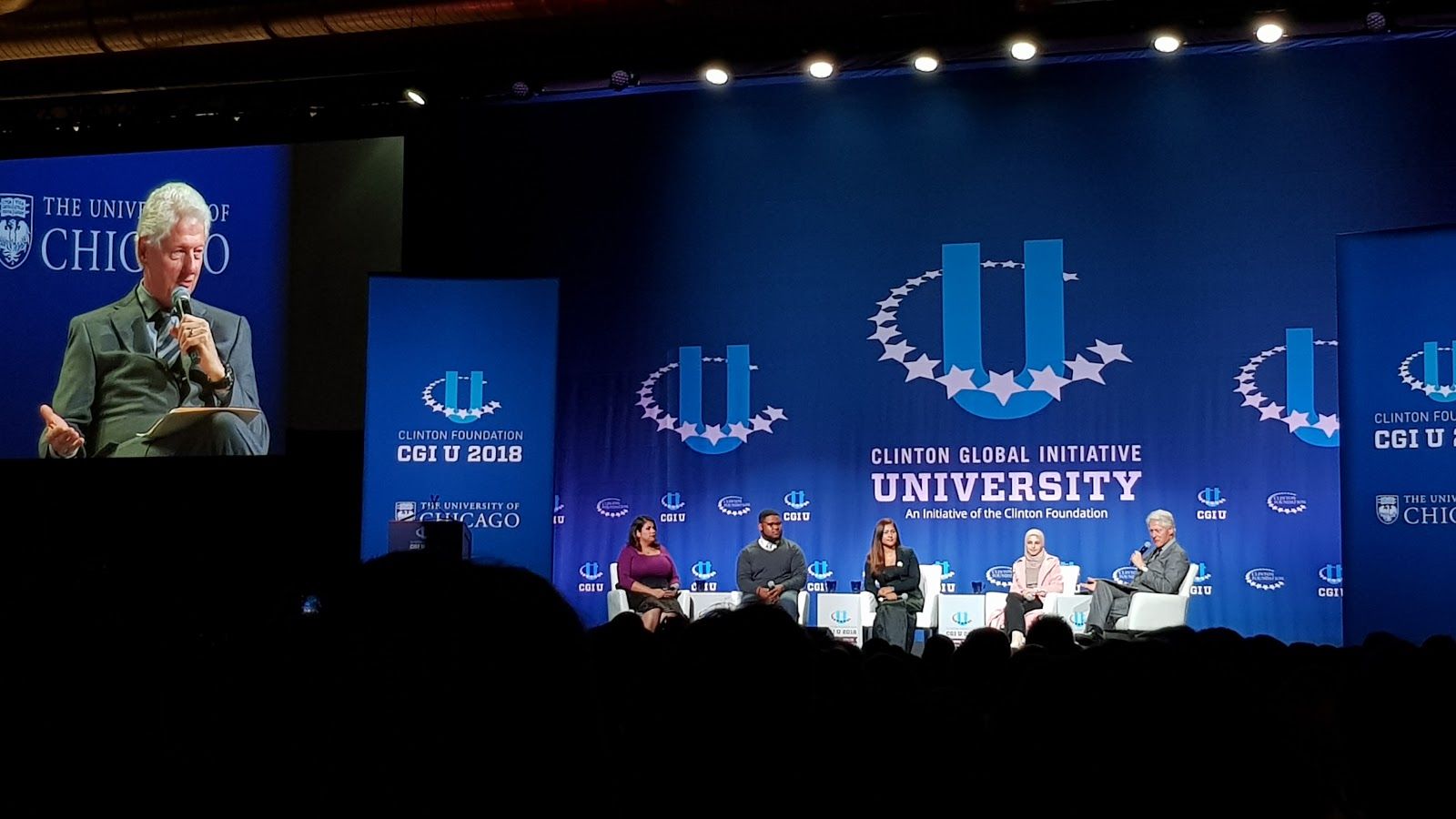
Opening Plenary: Expanding Civic Engagement moderated by Bill Clinton. D’Angelo McDade (second left to right) (photo credit: Nico Lang/Andrés Rodríguez Escallon/ETH Zurich)
With many other touching stories like the one from D’Angelo, it was not difficult to empathize with individual motivations and understand why these initiators
dedicate their lives to fight for minority rights, campaign against gun violence, and advocate for freedom of expression. It was a natural human reaction for us to also feel the need to solve these urgent problems. Personal experiences are one of the strongest drivers we have seen among these young leaders. Survival instincts, family emotions, and empathy are strong motivations to fight for change.
While climate change does not directly affect our daily lives in dramatic ways (yet), we have already seen its effects all over the world with an increased rate of hurricanes, floods in India, and droughts and wildfires in Europe and the US. It is perhaps because of a lack of direct consequences in our daily lives that some world leaders do not see the urgency in tackling this issue because they rather believe in their "natural instinct". D'Angelo's commitment is driven by his personal experience; can we wait for similar personal motivations to fight climate change? Do we need to witness more of these catastrophic effects before really committing in the fight against climate change?
Science has proven that we, humans, cause climate change and that we are the ones who can act against it. Whether we believe in science or not depends on how each individual understands the world; how we see science and what role we want to play in society. Interestingly, we were reminded of this idea, in our visit to the Chicago Arts Institute by Art Green’s eye-catching painting from 1966.
In a world dominated by social media, it is easy to get lost in what you believe. Freedom of expression is what enriches our world; collaborative art expressions from Hairy Who (see below) are nice examples. But with so many people speaking, we need to learn how to listen, and whom to listen to. In fact, learning how to consume the tons of media that we have at hand might be one of the most important skills of our time.
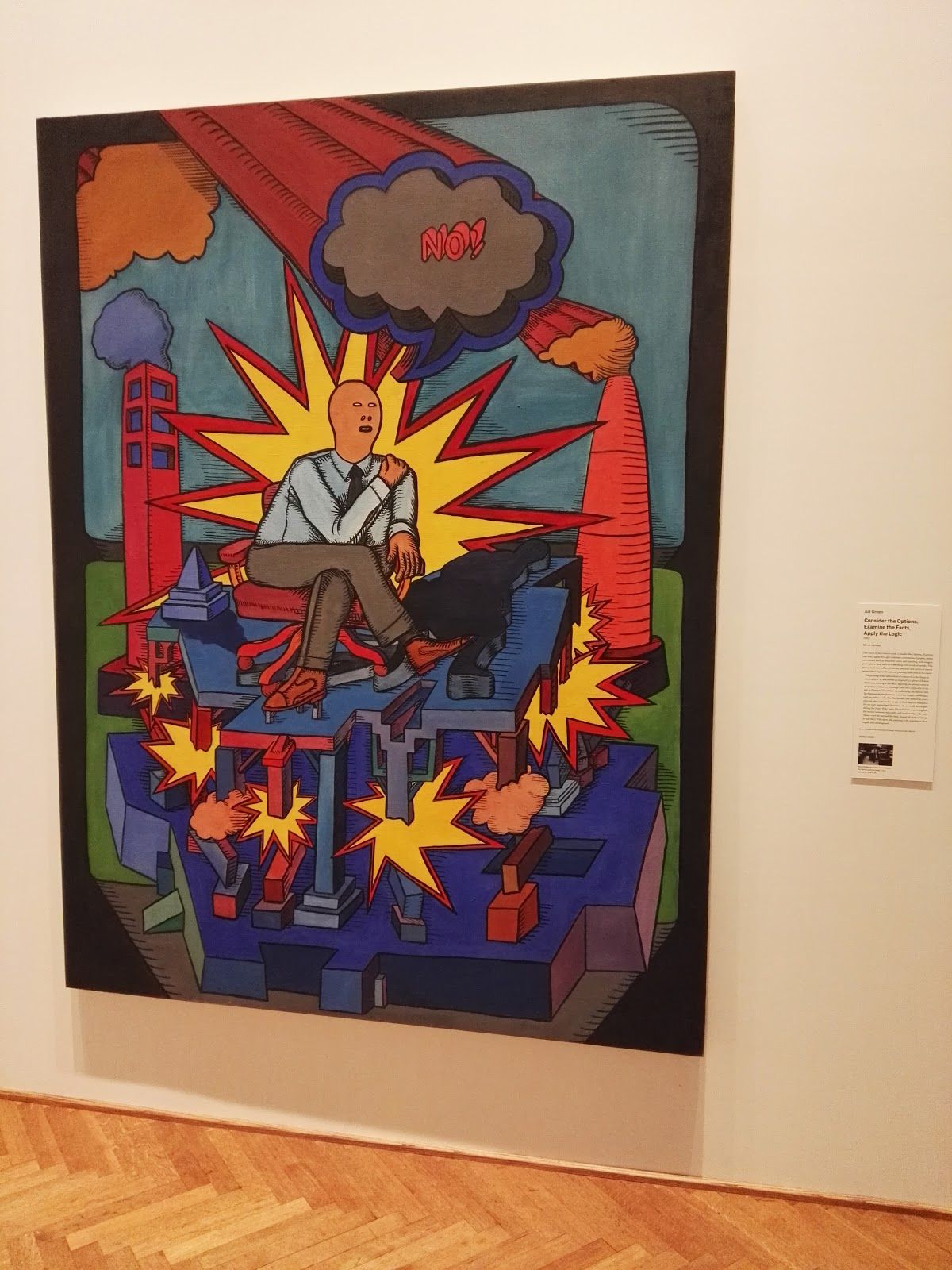
“Consider the Options, Examine the Facts, Apply the Logic” by Art Green, at the Chicago Art Institute (photo credit: Nico Lang/Andrés Rodríguez Escallon/ETH Zurich)
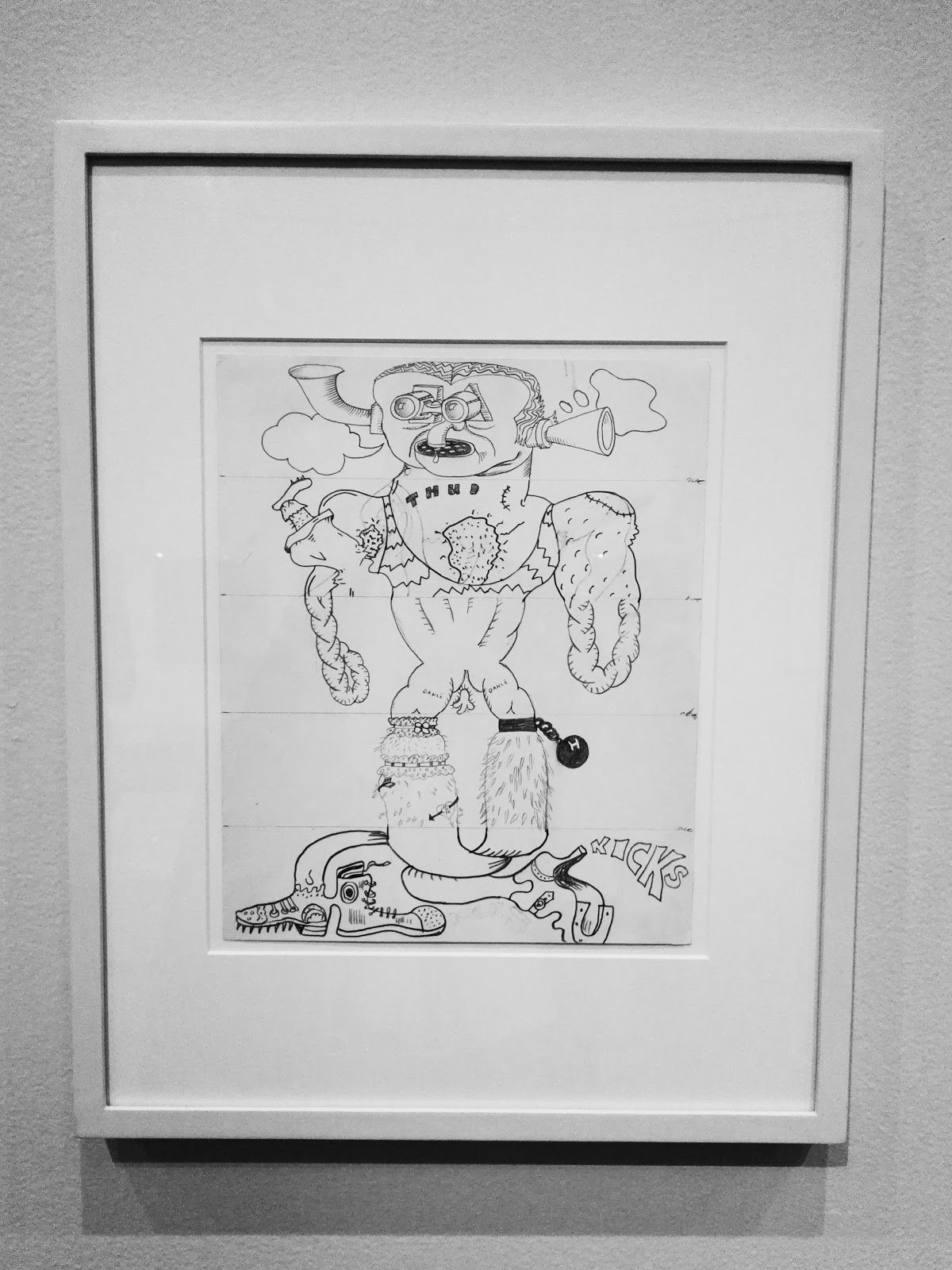
Untitled artwork by Hairy Who, an art collective focused on imaginative and experimental work. Created with the exquisite corpse technique (drawing game) where each artist draws one section independently. (photo credit: Nico Lang/Andrés Rodríguez Escallon/ETH Zurich)
Just as we need to know about nutrition to know that we can’t eat sugar and fats all the time; we need to learn how to consume social media to enrich our views.– Susan Herman, President, American Civil Liberties Union at the Freedom of Expression Forum at CGI U 2018
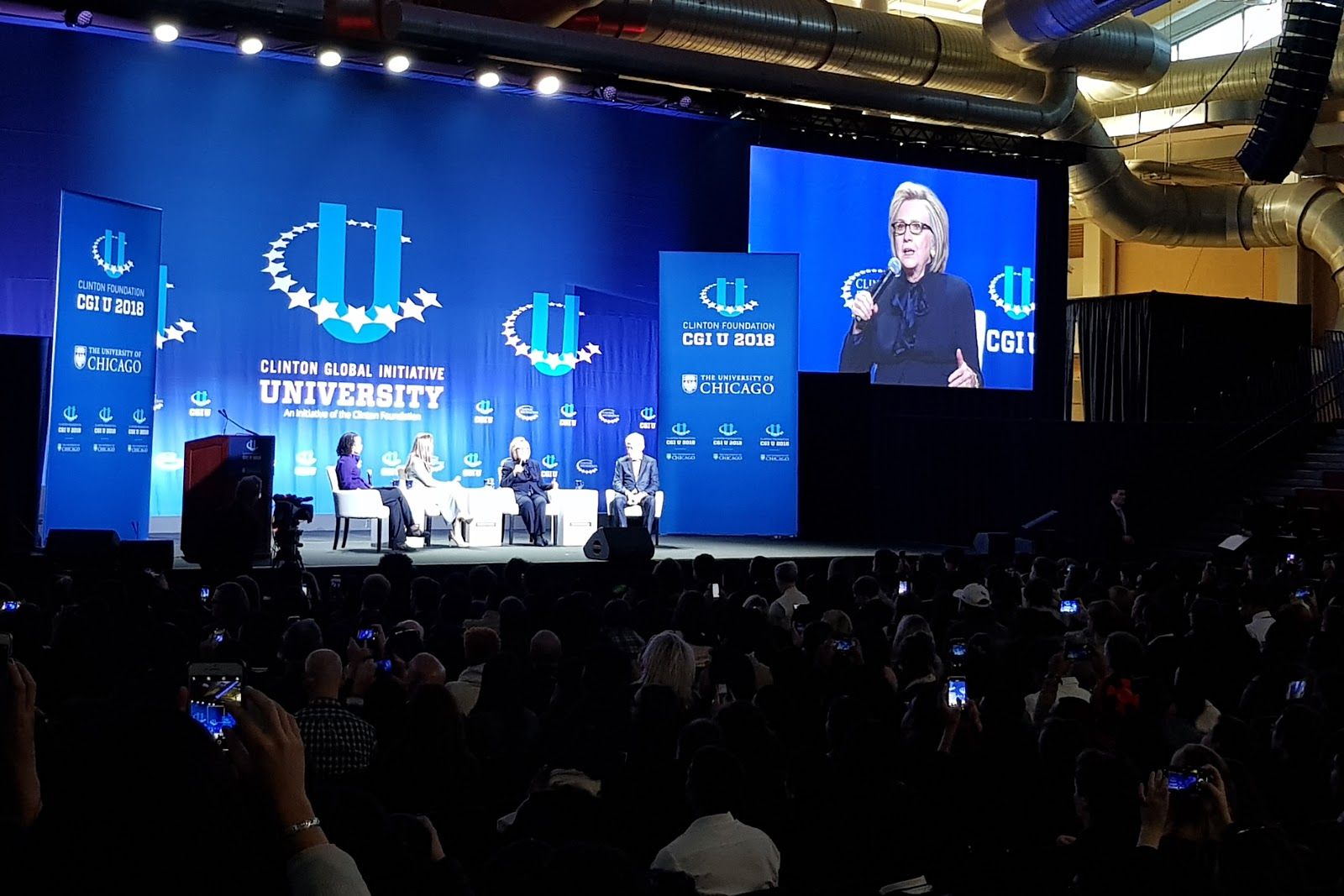
Closing plenary with Hillary, Bill and Chelsea Clinton (photo credit: Nico Lang/Andrés Rodríguez Escallon/ETH Zurich)
All in all, the CGI U meeting was an inspiring experience for us. Listening to Bill Clinton’s speech about optimism in these turbulent times, discussing with motivated students from all around the world with different backgrounds, and exploring the city of Chicago with all its diversity will long be remembered as a motivating memory. It has led us to reflect on our responsibility to use our knowledge and technical resources to tackle complex problems such as deforestation in the context of climate change.

About the authors
Both Andrés Rodríguez Escallon and Nico Lang are PhD students at ETH Zurich's EcoVision Lab in the Photogrammetry and Remote Sensing group. Their research focuses on the use of machine learning, especially deep learning approaches, for large-scale interpretation of satellite data in environmental applications.


